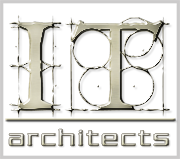Business Process Modeling
Business Processes define what organizations do and how they conduct business, and must be managed across functional areas within an organization. The use of various process models defines common process across functional areas and organizational boundaries with the intent that people are performing consistent and optimized processes within the entire enterprise. The business process models include Data Decomposition Diagrams, Business Process Flow Diagrams (Levels 1 to n), Event Process Chains, UML Activity Diagrams, and others. These models can be of a Descriptive, Prescriptive, or Explanatory nature. Effective business process modeling standards maintain consistency in process modeling, and process instances used across the enterprise. Process Modeling software can also dictate the types of models used and standards adhered to.
IT Architects provides a service to develop a Business Process Modeling Standards & Guidelines deliverable to ensure formal and consistent modeling practices across the organization.
Data Modeling
Data is a primary corporate resource, and must be managed effectively. The use of an enterprise and standardized data model enhances the interoperability among an organization’s information systems, facilitates increased data sharing, reduces data handling costs, and leads to better data accuracy, consistency and timeliness. Effective data modeling standards maintain consistency in data modelling, and data artifacts comprising conceptual, logical, and physical data models. The data models include Subject Area Diagrams, Data Cluster Models, Entity Relationship Diagrams, Data Flow Diagrams, UML Class Diagrams, and others. Data is defined and data characteristics are standardized as metadata, while data is managed via an Information Lifecycle process (which also can be automated using Information Lifecycle rules engines and software). Effective data modeling standards maintain consistency in data modeling, and data instances used across the enterprise. Data Modeling software can also dictate the types of models used and standards adhered to.
IT Architects provides a service to develop a Data Modeling Standards & Guidelines deliverable to ensure formal and consistent modeling practices across the organization.


